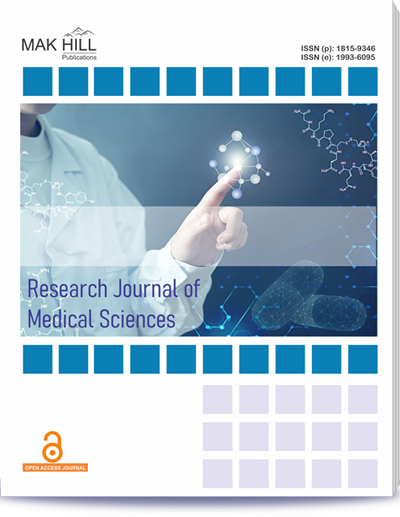
Research Journal of Medical Sciences
ISSN: Online 1993-6095ISSN: Print 1815-9346
Abstract
Effectiveness of PRP injections for OA is still controversial. We investigated the effect of PRP injections in patients with knee osteoarthritis based on clinical parameters‐decrease in pain, improving function and joint imaging parameters‐ global assessment and changes in specific components of the knee joint. The aim of this study was to evaluate the efficacy and safety of PRP injections in patients affected by knee osteoarthritis. Being an autologous blood product containing a high percentage of various growth factors [GF’S], cytokines and modulating factors, PRP has shown promising results in achieving this goal. This was the hospital based prospective, randomized clinical study. The study is conducted on patients who received 3 consecutive PRP injections and completed the follow ups. This study conducted from January 2022 to December 2023. Total 80 pts were allocated. The scores WOMAC, KSS and VAS were evaluated at 4 sittings, named T0, T1, T2, T3. T0 is the first sitting, before first PRP injection in the recruitment month. T1 is the second sitting, 1 month after T0. T2 is the third sitting, 3 months after T1. T3 is the fourth sitting‐6 months after T2. All pts underwent X‐ray evaluation at 6 months, at T3, after fourth sitting of PRP injection. PRP injections represent a valid conservative treatment to reduce pain, improve quality of pain, improve quality of life and functional score even at mid‐term of 6 months follow up.
How to cite this article:
Kone Rekha, Ravinder Bethi and Ramesh Gajula. A Study to Evaluate the Effect of Platelet Rich Plasma in Grade 1 and Grade 2 Osteoarthritis.
DOI: https://doi.org/10.36478/10.36478/makrjms.2024.8.385.389
URL: https://www.makhillpublications.co/view-article/1815-9346/10.36478/makrjms.2024.8.385.389